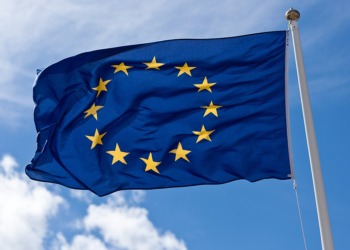The Corporate Sustainability Reporting Directive (CSRD) is a new EU legislation that requires all large companies to publish regular reports on their environmental and social impact activities.
The CSRD will help investors, consumers, policymakers, and other stakeholders evaluate large companies’ non-financial performance.
The implementation of these new regulations will guarantee that investors and other stakeholders can access information to evaluate investment risks related to climate change and other issues in accordance with EU sustainability reporting standards.
The CSRD extends the scope and reporting requirements of the already existing Non-Financial Reporting Directive (NFRD) – a regulatory framework that mandates sizable public interest entities to report on their sustainability performance since 2018.
What’s changing from the NFRD regulation
The new framework modernizes and strengthens the rules about the social and environmental information that companies have to report.
A broader set of large companies, as well as listed SMEs, will now be required to report on sustainability – approximately 50,000 companies in total. The new European parliament directive replaces and builds on the Non-Financial Reporting Directive (NFRD) by introducing more detailed reporting requirements and expanding the number of companies that have to comply.
The new framework modernizes and strengthens the rules about the social and environmental information that companies have to report.
EU perspective: consumers and investors deserve to know
The European Commission believes that consumers and investors deserve to know the sustainability impact of businesses, which is why it created the CSRD.
Low-quality sustainability reporting can have cascading effects, particularly in regard to promoting sustainable investments. To ensure the market for green investments is credible, investors need a clear picture of their investment portfolio’s sustainability.
The CSRD will set a standard by which nearly 50,000 EU companies will have to report their climate and environmental impact. It will help create a culture of transparency about the impact of companies on people and the environment.
When is the corporate sustainability reporting directive going to be enacted?
Here’s a break-down of the EU CSRD timeline:
The European Union has recently introduced the Corporate Sustainability Reporting Directive (CSRD), which requires companies to adhere to the European Sustainability Reporting Standards (ESRS). Starting from 5th January 2023, all companies that fall under the CSRD’s purview will be required to comply with the ESRS guidelines for their sustainability reports.
For listed small and medium enterprises (SMEs), the CSRD will be applicable for financial years starting on or after 1st January 2026.
However, these SMEs have the option to opt out until 2028. In case they choose to comply, they will have to submit their sustainability report based on the data from 2026 for the year 2027.
Non-European Union companies will be required to comply with the CSRD starting from 2028. Such companies will have to publish a sustainability report that adheres to the specific disclosure standards mentioned in the CSRD.

Corporate Sustainability Reporting Directive: a quick overview
The Corporate Sustainability Reporting Directive (CSRD) is an EU ESG standard passed by the European Union Council on November 28, 2022, designed to make corporate sustainability reporting more common, consistent, and standardized like financial accounting and reporting.
The directive modernizes and strengthens the rules about the social and environmental information that companies have to report, as well as the overall EU taxonomy regulation, along with the effects it will have on these companies business models and strategies.
It replaces and significantly broadens the scope of the existing sustainability reporting requirements under the EU’s current Non-Financial Reporting Directive (NFRD).
The CSRD requires ‘in scope’ businesses to report and disclose information on their societal and environmental impact and external risks. To follow this directive, companies should talk to their legal and accounting teams to make sure everything is done correctly.
How to comply with the European Union Corporate Sustainability Reporting Directive
Companies subject to the Corporate Sustainability Reporting Directive (CSRD) will have to report according to European Sustainability Reporting Standards (ESRS), which are developed by the EFRAG, an independent body gathering various stakeholders.
The European Commission is required to adopt the first set of reporting standards by June 30, 2023; such standards will specify the information that undertakings should disclose with regard to all reporting areas and sustainability matters and ensure alignment with regard to existing disclosure of sustainability information.
SMEs will be subject to a more limited set of reporting requirements (more on this below) based on the principle of proportionality that will not cover all reporting areas.
In relation to non-EU undertakings that will be subject to CSRD from 2028, CSRD requires the publication of a sustainability report in accordance with specific disclosure standards.
Companies should consult with their legal and accounting teams to ensure compliance with this directive.
Why is the EU Corporate Sustainability Reporting Directive important?
The EU Corporate Sustainability Reporting Directive (CSRD) is important as it helps investors, consumers, policymakers, and other stakeholders evaluate large companies’ non-financial performance.
The directive introduces detailed requirements for European financial reporting while seeking to ensure that large companies and listed SMEs report on environmental rights, social rights, human rights, and governance factors.
To ensure a level playing field for companies operating in the EU market, these reports will have to include information, especially on the non-financial performance of companies.
The CSRD modernizes and strengthens the rules about the social and environmental, i.e. sustainability information that companies have to report, and it is the EU’s latest initiative to enhance ESG disclosures. It will expand the requirements of earlier initiatives and bring considerably more companies under its scope.
What are the challenges of EU corporate sustainability reporting?
Compliance with the EU Corporate Sustainability Reporting Directive (CSRD) is a huge challenge for businesses.
The directive introduces detailed reporting requirements while seeking to ensure that large companies and listed SMEs report on environmental rights, social rights, human rights, and governance factors.
Businesses will need to set up new processes and procedures to meet these challenges.
When the law comes into effect in 2023, the CSRD is expected to accelerate capital allocation toward green investments.
The directive requires companies to seek “limited” assurance from third-party auditors. The directive is also unique for requiring companies to report their sustainability performance using EU-wide disclosure standards.

What does the EU CSRD mean for SMEs?
The Corporate Sustainability Reporting Directive (CSRD) requires a broader set of large companies, as well as listed SMEs, to report according to European Sustainability Reporting Standards (ESRS).
SMEs will be subject to a more limited set of reporting requirements based on the principle of proportionality that will not cover all reporting areas.
The CSRD doesn’t place any new reporting requirements on small companies, except for those with securities listed on regulated markets.
And to make it easier for listed SMEs, they can report using simplified standards (a good starting point being our Impakter Business solutions).
Non-EU companies that have a turnover of above €150 million in the EU will also have to comply with the directive. Compliance with this directive is important as it helps investors, civil society organizations, consumers, and other stakeholders evaluate the sustainability performance of companies.
What are the benefits of the EU corporate sustainability reporting directive for SMEs?
The Corporate Sustainability Reporting Directive (CSRD) introduces more detailed reporting requirements and ensures that large companies and listed SMEs are required to report on sustainability matters such as environmental rights, social rights, human rights, and governance factors.
The directive aims to reduce unnecessary costs associated with sustainability reporting by providing companies with a common reporting framework.
Companies will be required to provide qualitative and quantitative sustainability disclosures as part of mandatory common reporting measures.
Listed SMEs will only be expected to provide sustainability reporting that is proportionate to their size and resources, which could save them money in the long run. Additionally, complying with the CSRD can help SMEs monetize their sustainability efforts by improving their image in the market.
Final thoughts
The EU’s new Corporate Sustainability Reporting Directive (CSRD) is a big deal for businesses looking to up their game when it comes to being eco-friendly and socially responsible.
The directive requires all large companies to publish regular reports on their non-financial performance, including environmental, social, and governance factors.
Following the directive is quite a challenge, but it will go a long way in enabling investors, consumers, policymakers, and other stakeholders to gauge the impact of companies on society and the environment.
By reporting on sustainability, companies can create a culture of transparency that promotes sustainable investments and sets a standard for nearly 50,000 EU companies.
The CSRD also seeks to ensure a level playing field for companies operating in the EU market and will expand the requirements of earlier initiatives while boosting a sustainable economy in the Eurozone as a whole.
Editor’s Note: The opinions expressed here by the authors are their own. Not those of Impakter.com — In the Featured Photo: EU Flagsng. Featured Photo Credit: Unsplash.










